Ganam: Legendary Safaris Tanzania. Kizigo West and Central and Moyowosi South Conservation Report 2022.

By Arnaud Mermet
The Kizigo Game Reserve is a vast and diverse Miombo woodland in central Tanzania, forming a large part of the Greater Ruaha Ecosystem.
The area is home to approximately 300 species of birds and a wide variety of large mammals. Over 10% of the global lion population is estimated to reside in this ecosystem.
Ganam protects and manages 2 620 sq. km of this land.
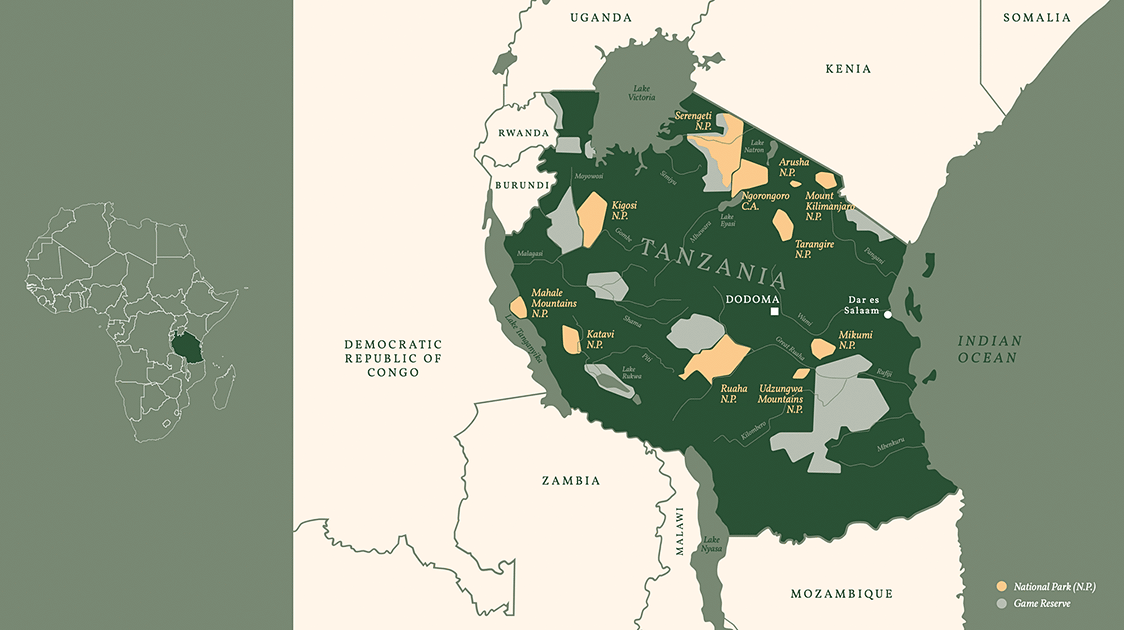
The Moyowosi South Game Reserve is a vast wetland system of extensive swamps, floodplains and forests supporting large wildlife concentrations. This area is difficult to access during both the dry and wet seasons. Visitors who experience the Moyowosi agree that it is probably as wild today as it was 100 years ago.
Challenges
While these areas are pristine in many ways, they face various constant pressures and are highlighted in this report.
They include but are not limited to wildlife poaching and Illegal timber logging, mining, livestock grazing, fishing and honey gathering.
Illegal timber logging
Illegal timber logging is a serious issue where large gangs move into the forests for several weeks at a time, cutting down large trees to supply the illicit East African hardwood trade. These illegal logging gangs are organized and well-armed.
The main target species include the Pod Mahogany (Afzelia quanzenzis) and the Bloodwood Tree (Pterocarpus angolensis).
Over 70 % of harvested wood in Tanzania is unaccounted for, which threatens to drive these species into extinction and cause a considerable loss of government revenue.
Tanzania has 33 million hectares of forests and woodland. The UN Food and Agriculture Organization’s most recent Global Forests Resources Assessment found that over 400,000 hectares have been lost yearly over the past two decades.
Without Ganam’s time, money, and resources to combat this issue - the miombo forests of East Africa would soon become a distant memory.
Our Actions
With the help of a helicopter, our rangers locate active illegal timber logging camps and coordinate with a ground unit to apprehend the gangs to be handed over to the local authorities.
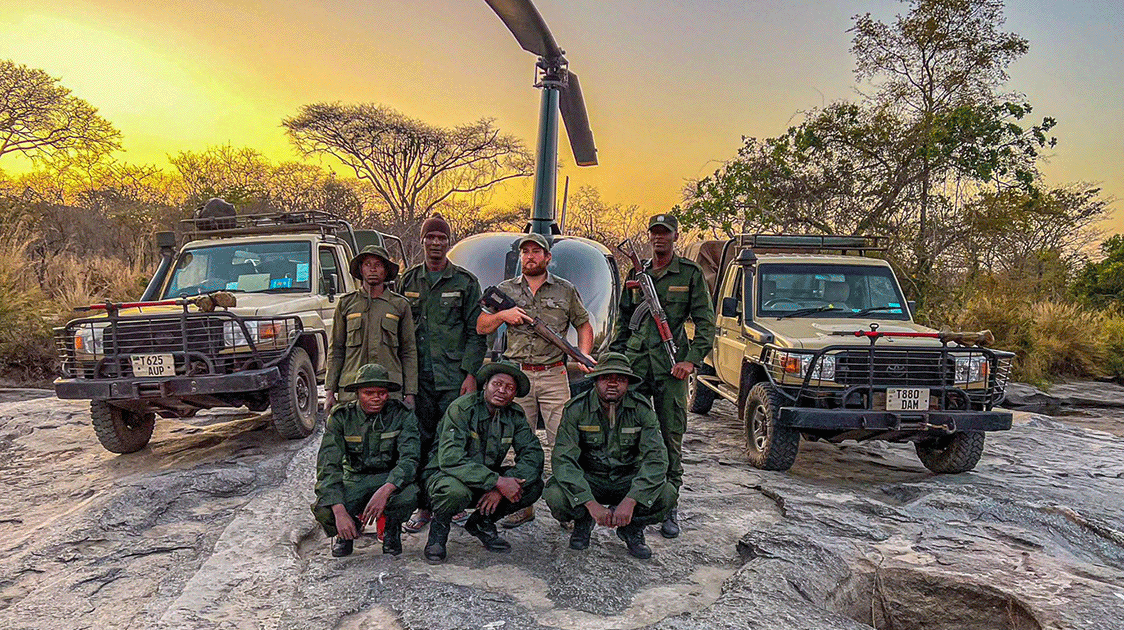
24 loggers arrested
61 pieces of timber confiscated
Wildlife Poaching
When Ganam took over the management of Kizigo Central and West in 2022, these blocks had been vacant for the preceding three years. There had been no legal safari hunting and minimal law enforcement. The poachers were killing wildlife of all species, ages, and sexes.
They were hunting mainly with homemade muzzleloaders, which are often a danger to themselves, but also very inefficient firearms, wounding far more animals than they kill.
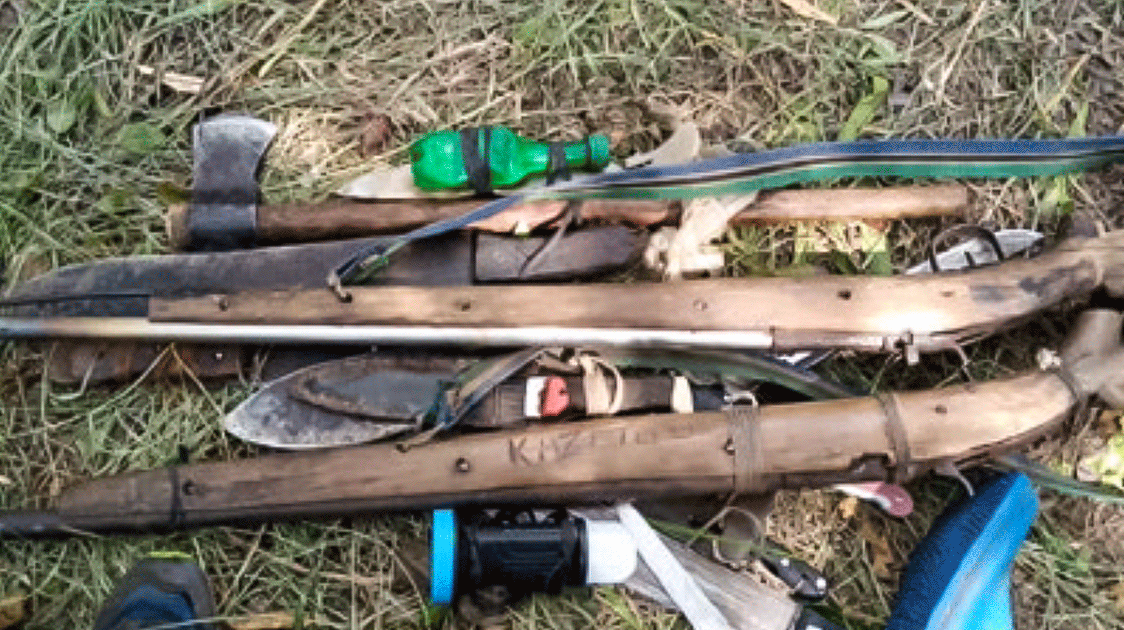
Old bullets and even arrowheads were found embedded in festering wounds causing great pain and suffering in some of the trophy animals hunted during the season.
The poached meat is dried and smoked in the field before it gets smuggled back to town, where it is sold commercially on the bush meat market.
There are obvious links to organized criminal groups which cater to the market in the nearby capital Dodoma.
With the lack of law enforcement in Kizigo Game Reserve, these poachers operated freely until our rangers started to show presence in the field.
Our Actions
We work closely with the Tanzania Wildlife Authority (TAWA) and the Project Manager of Kizigo Game Reserve to curb the poaching in our areas. On top of the presence of our employed rangers, we join forces with government and village game scouts.
With their authority comes the right to legally arrest and apprehend any suspects within the reserve boundaries.
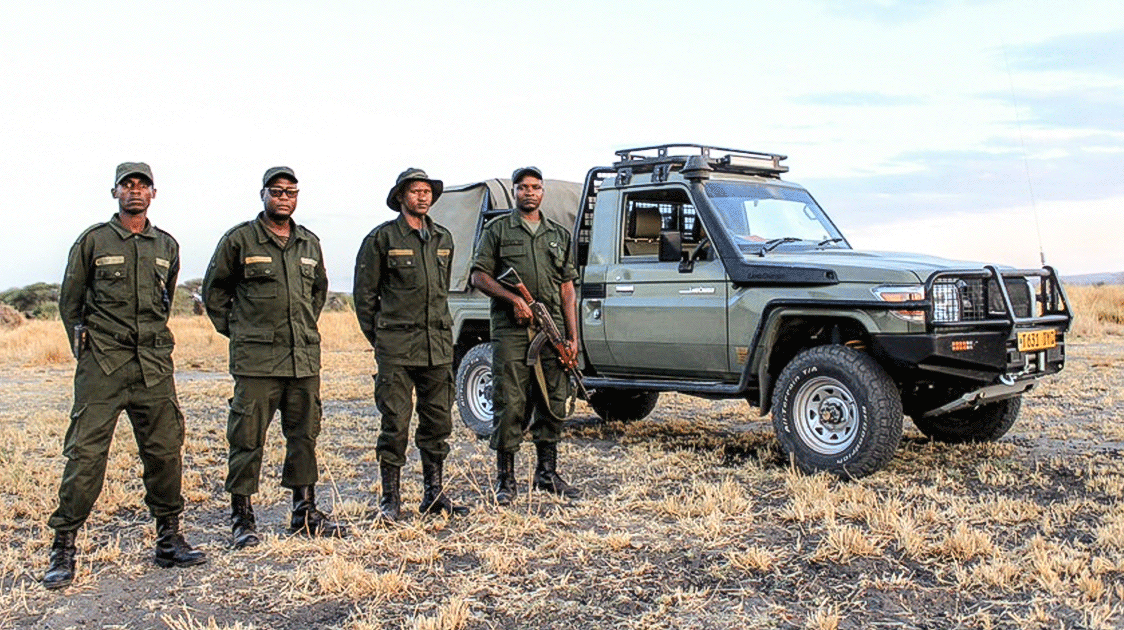
We have established a network of informants in the surrounding communities where people are offered a direct cash reward for information that leads to a successful arrest or confiscation of firearms.
This approach led to villagers voluntarily surrendering their muzzleloaders to accept the reward instead of risking being caught later.
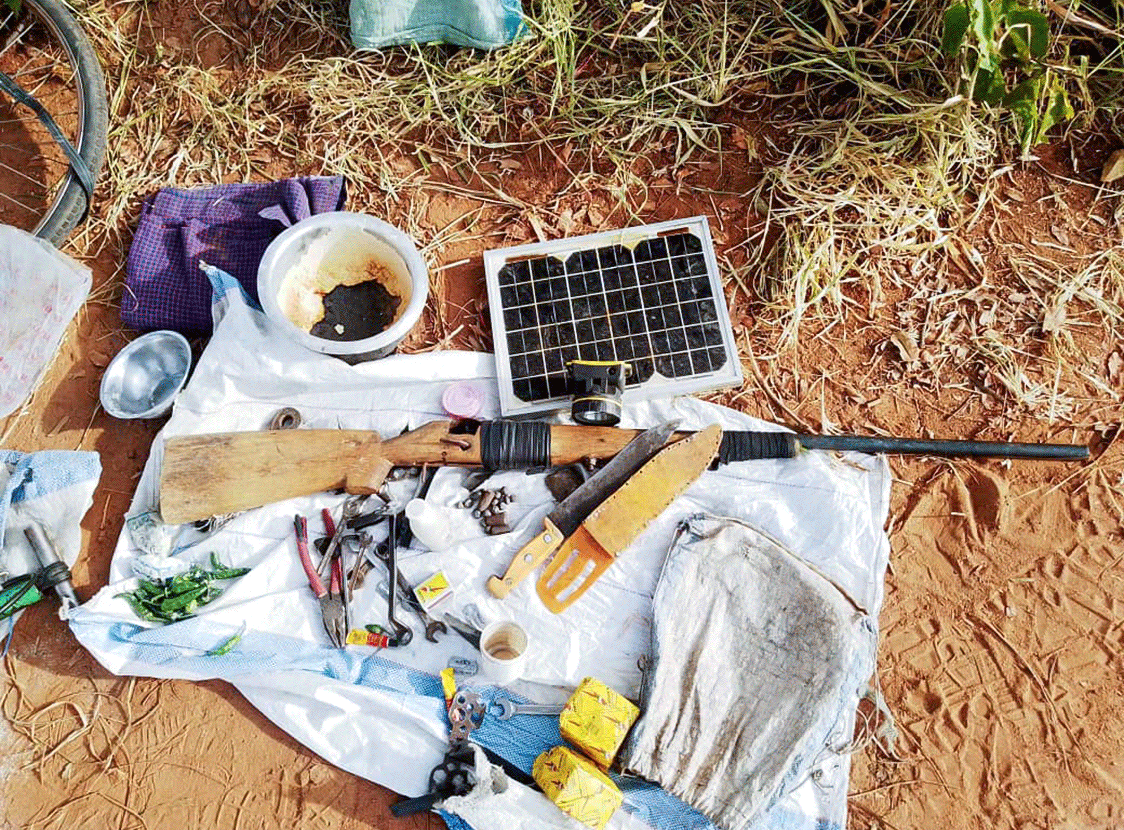
Illegal mining
Illegal mining is a large industry in Tanzania and poses a significant risk to those undertaking the practice.
In recent years the surrounding communities around Kizigo have started to exploit the gold hidden deep in the mountains around the reserve.
Armed with digging tools and dynamite, large groups move into the wilderness for weeks to excavate large pits and tunnels in the mountains to search for gold.
This is a great disturbance to the wildlife, avoiding these groups and the stress from dynamite explosions in the mountains. These illegal miners also poach wildlife and fish to feed themselves while working in the bush.
Gold is very important for Tanzania’s export revenue, and in 2020, the gold industry brought in more revenue than the tourism industry.
But because of these gangs of illegal miners and their connections to the smuggling networks, the Tanzanian government is losing huge amounts of gold to criminals.
Small-scale miners produce around 20 tons of gold annually in Tanzania, but an estimated 90 % of the output is illegally exported, according to a report by a parliamentary committee.
Our Actions
In 2022 alone, we arrested 20 illegal miners within the game reserves. The miners use bicycles to smuggle the gold out of the bush.
Our rangers set up ambushes on their secret paths through the bush and arrest them with the gold. This has already halted the mining activity by a significant amount. Still, because the financial incentive is so high for the locals, we need to increase our intelligence work and manpower to fight this issue.
Because this is a high-revenue industry run by criminal syndicates, the greater is the need for anonymity and support for our rangers who are risking their lives in fighting these crimes.
Illegal livestock grazing
According to the NM-AIST Research Repository, the hunting companies of Tanzania have surrendered 45 % of the hunting blocks back to the government due to habitat destruction caused by illegal livestock grazing.
Moyowosi South’s economic viability is threatened along its borders by herders constantly bringing their livestock across the boundaries. This area is a globally important Ramsar Site and home to the East African Sitatunga and Shoebill Stork.
These habitats are being destroyed by the increasing numbers of cows and goats constantly competing with the local wildlife for resources by reducing forages, enhancing the soil compaction and blocking the wildlife from their traditional drinking and feeding points.
Buffalo density is decreasing in the invaded areas, while predator attacks on livestock are increasing because of a lack of natural prey animals.
Factors contributing to illegal grazing include the absence of foraging land outside the game reserves due to the overpopulation of livestock in the surrounding communities. Limited government patrols during the wet season and lenient prosecution laws are also part of the problem.
Our Actions
Helicopter surveillance is a great technique to locate livestock herds in the game reserves. This also helps to understand the main points of entry and where our rangers need to increase their patrols.
Our rangers do their best to discourage livestock and herders from entering the areas but are often outnumbered and met with violent resistance.
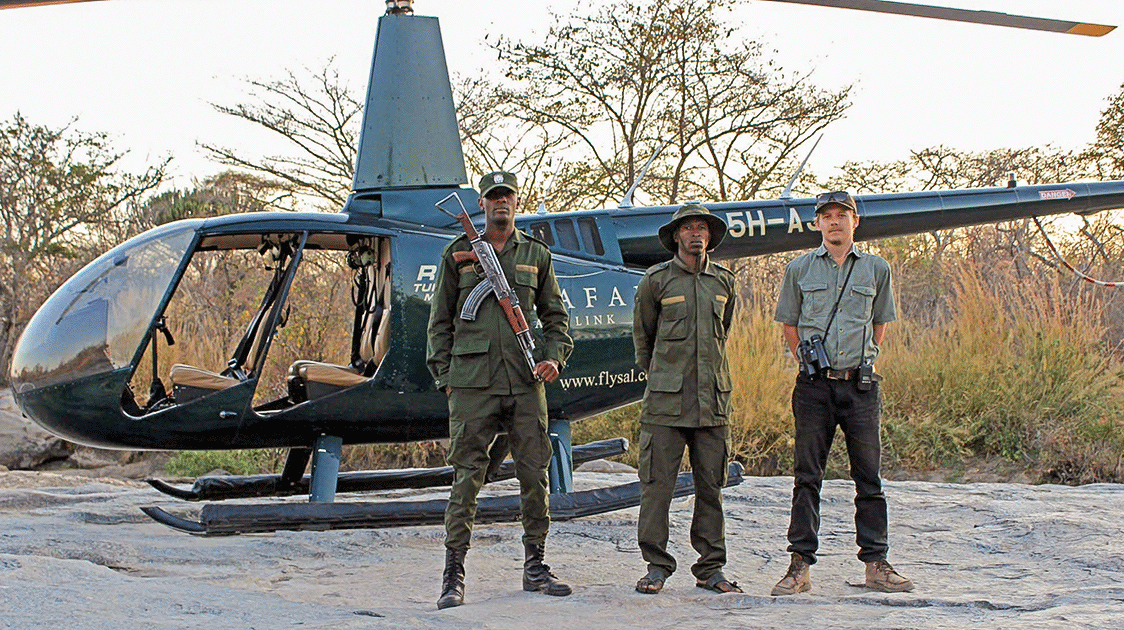
The swamps along the Moyowosi River are difficult areas to control and a hotspot for the herders where there is unlimited water and grazing supplies all year round.
The rangers enter the swamps with amphibian vehicles, canoes and boats under very rough conditions and always risk encountering hippos and crocodiles in these waters.
Illegal fishing
Our conservation work also involves combating illegal, unreported and unregulated fishing in the freshwater bodies throughout the Kizigo and Moyowosi Game Reserves.
The culprits are well coordinated, and residents allege that some officials collude with fishermen, often informing the criminals before our impending patrols and raids.
The water bodies are being overfished with restricted nets, dynamite and poison, and the fishing agencies in these regions are failing to set and enforce the quotas. Because the fish are being caught faster than they can reproduce, their average size decreases as fewer survive into maturity.
This is a significant setback for our intentions of developing sport fishing tourism in our areas. With densities becoming lower and fish sizes smaller, we fear that if illegal fishing continues at this rate, our areas will not be able to attract tourists or compete with other African destinations.
The use of potentially harmful substances and poisons to catch fish in major water bodies is threatening the life of the ecosystems and the people living in them. Health experts say consuming fish caught using chemicals is a major cause of cancer and reproductive complications for wildlife, fish and humans.
Trespassing fishermen contaminate rivers, waterholes and springs with poison to intoxicate the fish for easy capture.
This is an environmental disaster in the making.
Our Actions
Water is a precious resource for all wildlife and humans in the areas where we operate, and we carefully monitor all rivers, swamps and springs. We have invested heavily in our fleet of boats, canoes and amphibian vehicles to have a presence in these rugged terrains.
Our network of informants plays a crucial role in allowing us to take preventative measures, such as blocking fishermen before they enter the reserves.
The main issues are the local communities' lack of knowledge and information about how damaging and unsustainable their fishing practices are.
We aim to create more awareness about the adverse effects this has on their health and environment by involving key people within the wards and districts to convey this vital message.
Conclusion
In the short period we have managed these areas, we have made a significant difference in protecting their resources. Largely thanks to our committed and experienced team of rangers and their collaboration with the local wildlife authorities.
Ganam has committed to leasing these areas for the next ten years and plans to invest heavily towards improving our hunting grounds and the surrounding areas and communities.
Our work will require a large workforce where 80 % of the hired staff come from nearby villages, contributing greatly to the economy and development in these rural areas. We will continue our census and research to understand how we can contribute to these communities most beneficially, whether drilling for drinking water, building schools, or protecting crops from wildlife raids.
We aim to continue developing our anti-poaching strategies as we gain more experience and learn more about the areas in which we work. Our rangers are well-equipped with vehicles, motorcycles, amphibious vehicles, boats, canoes, all-weather tents and accommodation, functional holiday rotation, uniform and a generous bonus and reward system to motivate them for their hard work.
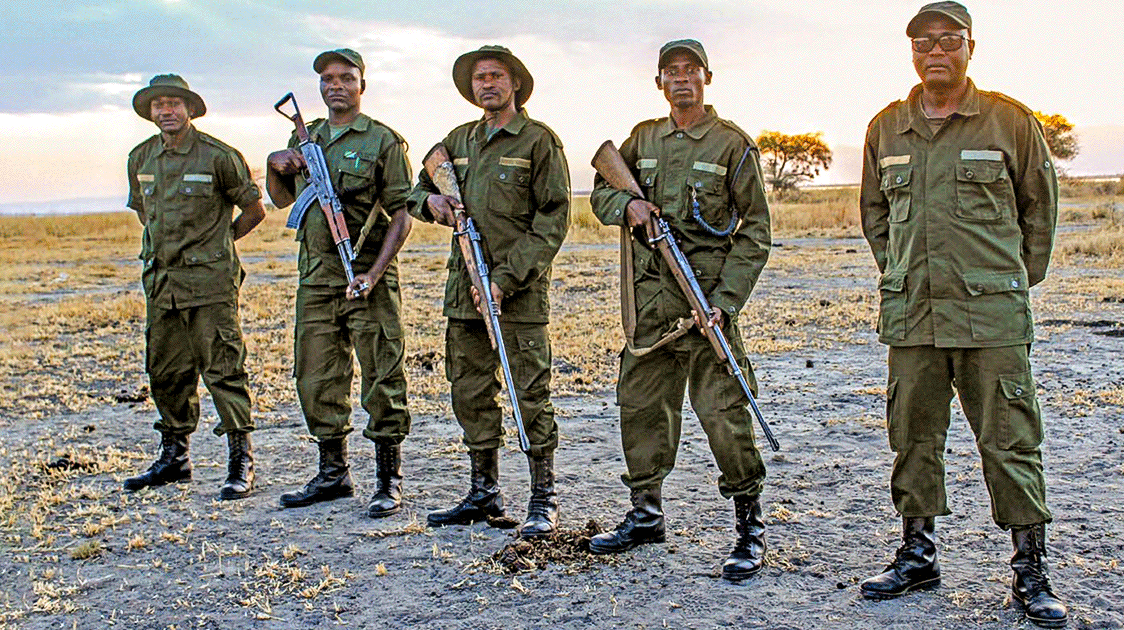
Our anti-poaching and conservation efforts never take a break or disrupt its activities. To secure the future of wildlife and, at the same time, keep our rangers and collaborators safe and sound, we remain committed not only financially but also emotionally.
Our goal is to demonstrate to rural communities, the tourism industry and Africa that wildlife conservation is possible through an ethical and sustainable hunting model.

Comments ()